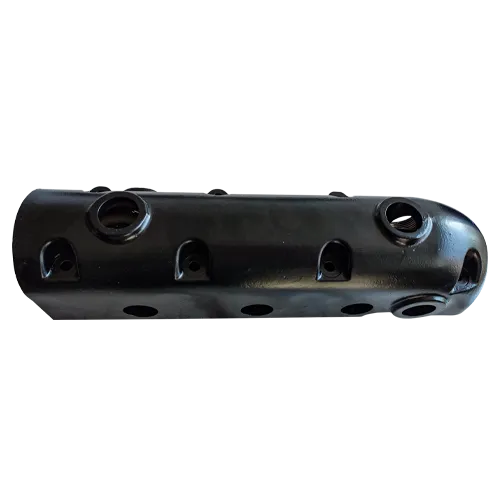Mobile:+86-311-808-126-83
Email:info@ydcastings.com
Understanding the Function and Design of Centrifugal Impellers in Fluid Dynamics Applications
Understanding Centrifugal Impellers A Key Component in Fluid Dynamics
Centrifugal impellers play a crucial role in various engineering applications, particularly in pumps and compressors. Their design and functionality make them essential for efficiently transferring energy from a rotating shaft to the fluid, leading to increased fluid velocity and pressure. This article explores the principles, types, and applications of centrifugal impellers, providing insight into their significance in modern technology.
Principles of Operation
At the heart of a centrifugal impeller's operation is the principle of centrifugal force. When the impeller rotates, it applies centrifugal force to the fluid, pushing it radially outward. This action converts rotational energy into kinetic energy, resulting in an increase in fluid velocity as it moves through the impeller blades. As the fluid exits the impeller, the sudden expansion of the discharge area converts the kinetic energy into pressure energy, raising the fluid's pressure and allowing it to flow to the desired location.
Types of Centrifugal Impellers
Centrifugal impellers come in various designs, each tailored for specific applications
. The two primary types are1. Open Impellers These consist of blades without a shroud, allowing for easy passage of fluids and minimizing blockage. Open impellers are ideal for pumping slurries or fluids with solids, as they can handle larger particles without clogging.
2. Closed Impellers Featuring two shrouded sides, closed impellers are more efficient at converting energy due to their controlled flow path. They are well-suited for applications requiring high pressure and flow stability, such as domestic water pumps and industrial compressors.
centrifugal impeller

Applications
Centrifugal impellers are prevalent in various industries and applications, including
- Water Supply and Treatment In municipal water systems, centrifugal pumps equipped with impellers are crucial for transporting water from sources to treatment facilities and distributing it to households.
- HVAC Systems Centrifugal fans and blowers equipped with impellers are used to circulate air in heating, ventilation, and air conditioning systems, ensuring efficient indoor climate control.
- Chemical Processing Many chemical plants utilize centrifugal impellers for mixing and transferring a wide range of liquids. Their ability to handle viscous fluids and maintain consistency is vital for optimal production.
- Aerospace and Automotive In turbochargers and superchargers, centrifugal impellers compress air, enhancing engine performance by improving air intake and combustion efficiency.
Conclusion
Centrifugal impellers are a fundamental component in fluid dynamics, contributing significantly to the efficiency and functionality of various systems across multiple industries. Their design variations cater to specific applications, ensuring versatility in handling different types of fluids. As technology advances, ongoing research and development in centrifugal impeller designs will likely lead to even greater efficiencies and broader applications, solidifying their crucial role in engineering and technology. Understanding centrifugal impellers thus becomes essential for engineers and technicians working in fields where fluid motion and management are critical. Their importance cannot be overstated, as they underpin the efficiency of countless systems that modern society relies upon daily.
-
Why Should You Invest in Superior Pump Castings for Your Equipment?NewsJun.09,2025
-
Unlock Performance Potential with Stainless Impellers and Aluminum End CapsNewsJun.09,2025
-
Revolutionize Your Machinery with Superior Cast Iron and Aluminum ComponentsNewsJun.09,2025
-
Revolutionize Fluid Dynamics with Premium Pump ComponentsNewsJun.09,2025
-
Optimizing Industrial Systems with Essential Valve ComponentsNewsJun.09,2025
-
Elevate Grid Efficiency with High-Precision Power CastingsNewsJun.09,2025











